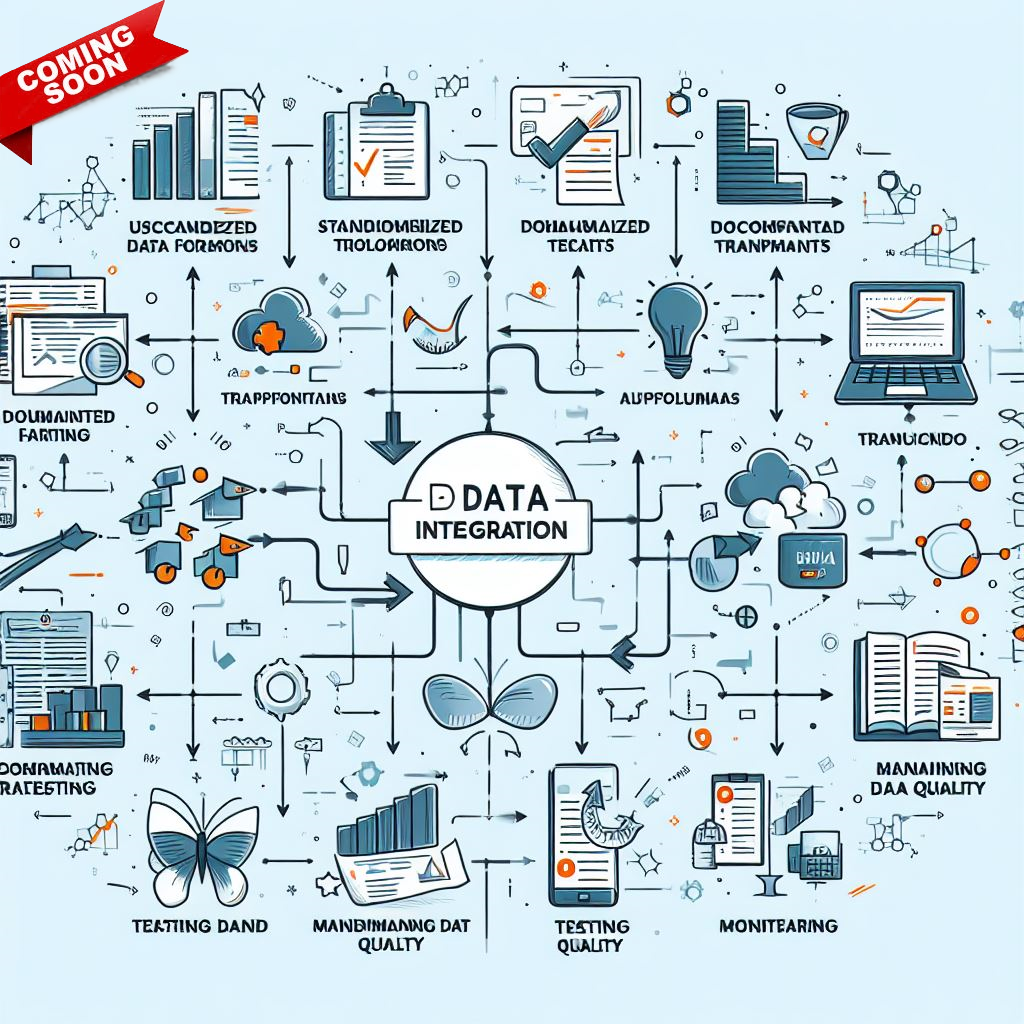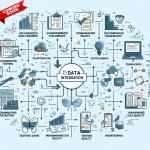Are you ready to join a knowledge community where you can share knowledge, receive insights from experts and earn passive income?
--> Please select the course building project you want to participate in and Click "Join Project"! and become part of the project!
Whether you want to improve your skills, explore new opportunities, or simply increase your passive income, this project gives you additional opportunities to achieve your goals.
So joining an educational community where we can work together with many experts in many fields, have the opportunity to increase your self-worth and financial growth.
Below is the expected course framework, which you can completely customize - this is just a suggestion for the content to be implemented, with weights for each component:
Module 1: Introduction to Data Integration
- Understanding the concept of data integration
- Importance and benefits of effective data integration in organizations
- Overview of common data integration challenges and complexities
- Case studies showcasing successful data integration initiatives
Module 2: Data Integration Architecture
- Fundamentals of data integration architecture
- Overview of different data integration architectures (e.g., batch processing, real-time processing, event-driven architecture)
- Considerations for selecting the appropriate architecture based on organizational needs and requirements
- Hands-on exercises to design and implement data integration architectures
Module 3: Data Integration Patterns
- Introduction to data integration patterns and design principles
- Overview of commonly used integration patterns (e.g., ETL, ELT, CDC, messaging queues)
- Detailed exploration of each integration pattern, including their advantages, limitations, and use cases
- Practical examples and case studies illustrating the implementation of data integration patterns
Module 4: Data Quality and Governance in Integration
- Importance of data quality and governance in data integration processes
- Strategies for ensuring data quality throughout the integration lifecycle
- Implementing data governance frameworks to maintain data integrity and compliance
- Tools and techniques for data quality assessment and monitoring
Module 5: Data Integration Tools and Technologies
- Overview of popular data integration tools and platforms (e.g., Apache Kafka, Informatica, Talend, MuleSoft)
- Evaluation criteria for selecting the right data integration tool for your organization
- Hands-on demonstrations and tutorials of data integration tools
- Best practices for tool implementation and integration into existing IT infrastructure
Module 6: Cloud Data Integration
- Understanding the role of cloud computing in data integration
- Overview of cloud data integration services and platforms (e.g., AWS Glue, Azure Data Factory, Google Cloud Dataflow)
- Considerations for migrating and integrating data in cloud environments
- Case studies highlighting successful cloud data integration implementations
Module 7: Big Data Integration
- Introduction to big data technologies and ecosystems
- Challenges and considerations for integrating big data into traditional data environments
- Techniques for integrating structured and unstructured data sources in big data projects
- Hands-on labs and exercises using Hadoop, Spark, and other big data frameworks
Module 8: Real-Time Data Integration
- Understanding the importance of real-time data integration in modern business environments
- Overview of real-time integration patterns and technologies (e.g., Change Data Capture, streaming platforms)
- Implementing real-time data pipelines for continuous data ingestion and processing
- Use cases and case studies demonstrating the benefits of real-time data integration
Module 9: Data Integration Best Practices
- Best practices for designing, implementing, and maintaining data integration processes
- Strategies for managing complexity and scalability in data integration projects
- Tips for optimizing performance, reliability, and security in data integration workflows
- Lessons learned from successful data integration projects and initiatives
Module 10: Future Trends in Data Integration
- Exploration of emerging trends and technologies shaping the future of data integration
- Predictions for the evolution of data integration architectures and patterns
- Considerations for staying ahead of the curve and adapting to technological advancements
- Opportunities and challenges in the era of AI, IoT, and edge computing for data integration






